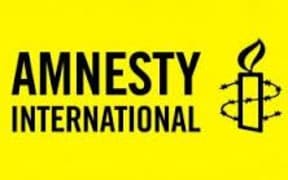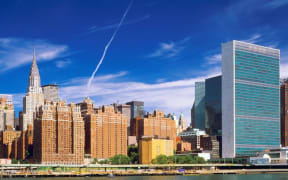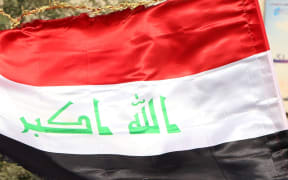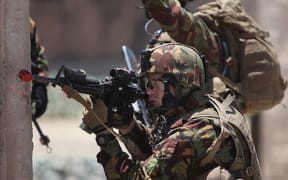Just two months after taking its position on the United Nations Security Council, diplomats say New Zealand is fully engaged in the council's debate on the world's most intractable issues.
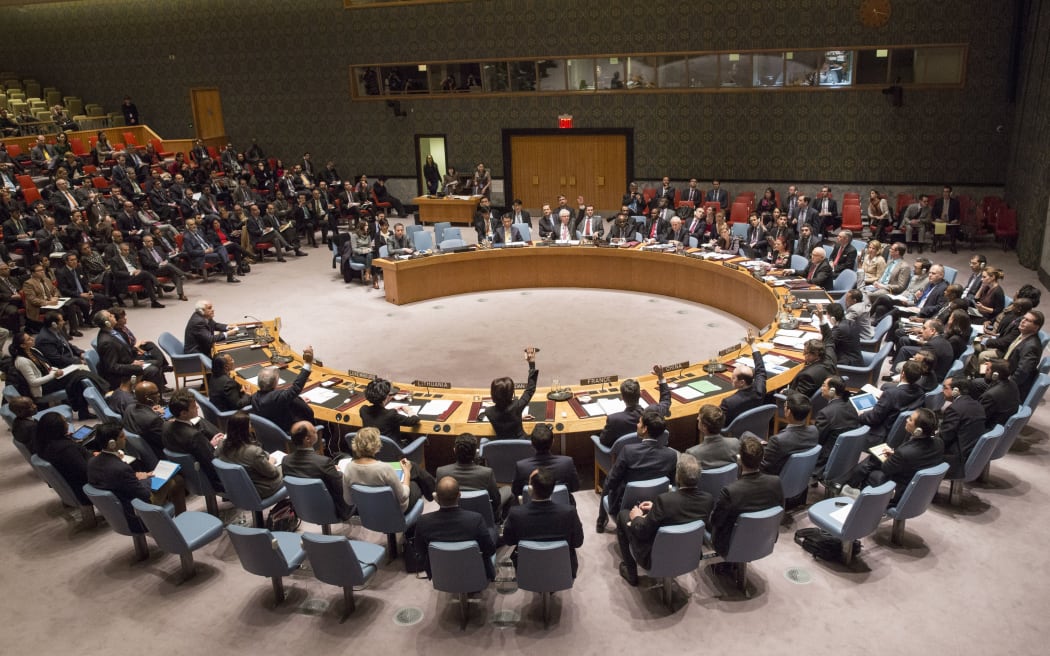
The UN Security Council during a meeting on 30 December 2014 in New York. Photo: AFP
But while other members of the council have engaged with New Zealand representatives in New York, the five permanent members - Russia, the United State, China, Britain and France - continue to flex their muscles.
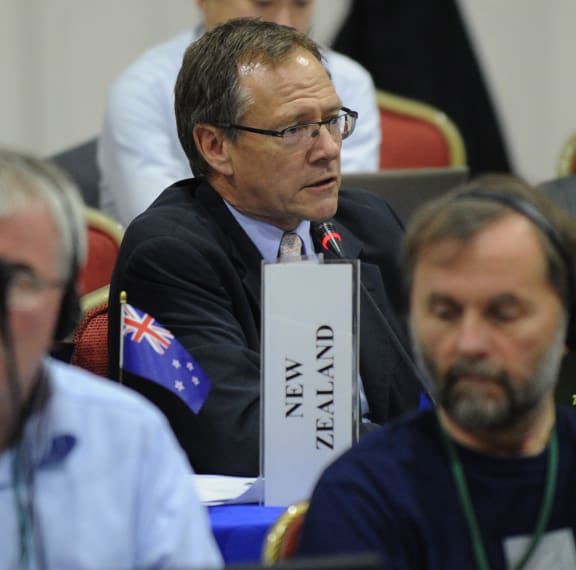
Gerard van Bohemen - pictured during a meeting of the International Whaling Commission in Panama in 2012. Photo: AFP
In a briefing to Parliament's Foreign Affairs, Trade and Defence Select Committee, senior Ministry of Foreign Affairs (MFAT) official Gerard Van Bohemen told MPs the five permanent members often talked among themselves first before a contentious matter went to the council.
For example, when Ukraine was to be considered by the council, New Zealand struggled to find out what was going on as the big powers discussed the matter.
Mr Van Bohemen, who will move to New York in late April to replace Jim McLay as New Zealand's permanent representative at the UN, said there was a view that the Security Council's membership was also more problematic this term and less homogenous.
"It's got more unusual grouping of countries. Venezuela and Angola are on this time who've have got quite independent sort of lines. But we're finding in fact that everyone has been very much pleased to talk to us."
He said the big issues were Israel and Palestine, Iraq and Islamic State, Syria and Ukraine. But recently issues had arisen around Yemen and Libya.
Money, weapon flows 'drying up'
During his briefing, though, it was consideration of the threat posed by Islamic State (ISIL) which dominated most of the discussion.
Mr Bohemen said the Security Council's main focus was on trying to starve the organisation of money.
He said that particularly related to stopping ISIL making money from selling oil and antiquities which it was seizing from the region. A resolution put forward by Russia had been unanimously supported by the council.
Mr Bohemen said while the council members, particularly the US and Russia, had strong differences about the situation in Syria they all agreed that Islamic State posed a serious threat and needed to be dealt with.
But the Security Council's action on Islamic State did not extend to authorising military action.
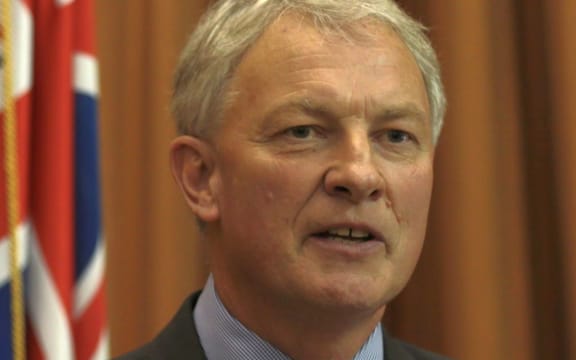
Phil Goff Photo: RNZ
Labour's defence spokesperson Phil Goff asked how much could be done to starve ISIL of money and weapons when much of it was funneled through Turkey, Qatar and Saudi Arabia.
Mr Van Bohemen would not be drawn on that but said New Zealand was now chairing the sanctions committee.
"We are in that sense directly involved in the Security Council mechanism that monitors sanctions and seeks to impose the controls that are already in place for all Al Queda-listed organisations but these have now been particularly beefed up in relations to ISIL."
The Al Qaeda committee had been the pre-eminent anti-terrorism committee since 2001 and it made sense to include ISIL within that rather than set up a separate committee.
"The fact that all of the permanent members are united behind this effort provides a lot of heft actually. So we are understanding that those flows are drying up but as you know it is an area of lawlessness, around particularly in Syria."
He said he was confident the pressure was going on and that sanctions worked through a process of slow strangulation rather than having an immediate impact.
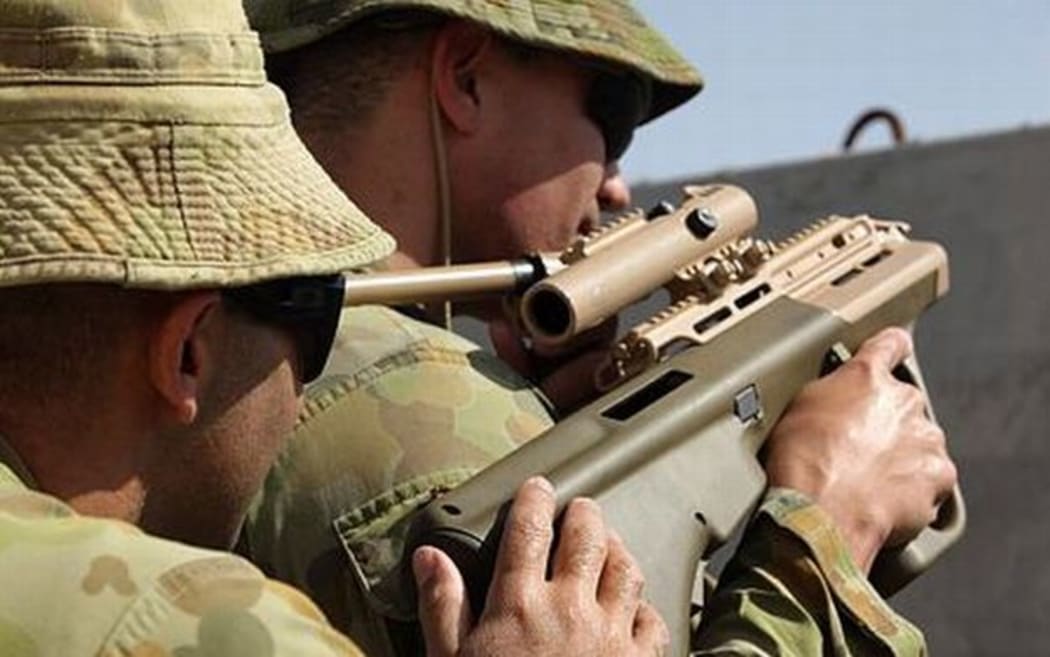
Australian soldiers in Iraq as part of the anti-ISIL Operation Okra. Photo: Australian Defence Force
Mr Goff said everyone wanted to see effective action taken against Islamic State.
He said apart from starving it of resources more had to be done to address the circumstances that gave rise to the organisation. These included sectarian violence in Iraq and the Syrian regime turning a blind eye to ISIL.
"Can you see a role for New Zealand in pushing for the Security Council to address those two areas that have given rise to the growth and level of support that ISIL is getting?" Mr Goff asked.
Mr Van Bohemen said the situation in Syria was very complicated whereas in Iraq it was more straightforward, at least at a national level.
"The Security Council is essentially a crisis management body that looks at how you stop people fighting and tries to put the peace in place. The United Nations more generally has all of the other responsibilities to address the social conditions and all the other things that lie behind ISIL."
He said the rise of ISIL could be traced back to the collapse of the Ottoman Empire, to the poverty of many people, particularly the young, in the region and to the great level of anxiety and frustration many Arabs felt over the Israel-Palestine dispute.
Mr Van Bohemen said all those issues had to be addressed but that went beyond the responsibilities of the Security Council.
